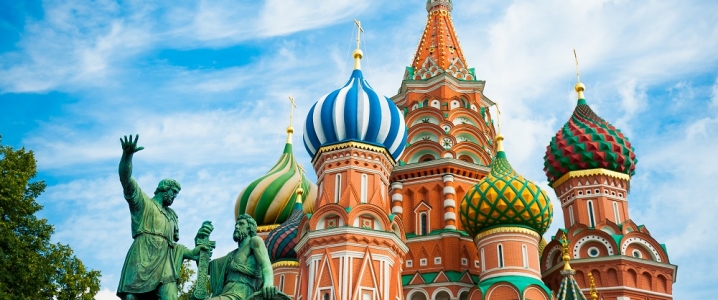Russian assets have had a bumpy ride this year as a global retreat from emerging market assets and exchange-traded funds combine with a new wave of U.S. sanctions to put pressure on the Russian ruble, Russian stocks, and Russian ETFs.
Yet the ETFs tracking Russian stocks have been largely spared from huge outflows until last week, even when the biggest Russia-focused ETFs saw their performance plunge in early April following the latest U.S. sanctions on Russian oligarchs and companies they control or own.
Until last week, the oil price rally—fueled by concerns over future supplies from Iran and Venezuela—had supported the Russia-focused ETFs.
But as oil prices plunged at the end of last week on reports that Saudi Arabia and Russia were considering lifting the production of the countries part of the pact by as much as 1 million bpd, outflows from Russia ETFs intensified and reached their highest level in a year—since June 2017, according to data compiled by Bloomberg.
The buffer that has so far spared the Russia-focused ETFs—rallying oil prices—has vanished.
According to Bloomberg data, outflows from the world’s largest ETF tracking Russian stocks, VanEck Vectors Russia ETF, whose top ten holdings include Gazprom, Rosneft, Lukoil, Tatneft, and Novatek, hit US$88.9 million last week—the fastest redemptions pace in nearly one year.
The energy sector is the top industry holding for VanEck Vectors Russia ETF, and last week’s oil price tumble played a role in the highest outflows from the fund in a year, according to analysts.
“There is a global outflow from emerging markets -- Russia isn’t an exception from the trend, but recently its market was supported by higher oil prices,” Vadim Bit-Avragim, a money manager at Kapital Asset Management LLC in Moscow, told Bloomberg.
“Now the factor of high crude price is diminishing,” he noted. Related: OPEC Unlikely To Open The Oil Taps In June
The latest oil price-related retreat from the Russia-tracking funds comes on top of a turbulent two months that saw Russian assets and ETFs booking in early April one-day plunges unseen in years, after the U.S. announced new sanctions on Russian businessmen.
On April 6, the U.S. Treasury designated seven Russian oligarchs, including Oleg Deripaska, and 12 companies they own or control, 17 senior Russian government officials, and a state-owned Russian weapons trading company and its subsidiary, a Russian bank.
On the following trading day, April 9, VanEck Vectors Russia ETF and another Russia-tracking fund, iShares MSCI Russia ETF, saw their performance tumble, as Russian stocks plummeted to four-year-lows and the Russian ruble crumbled. Yet, both VanEck Vectors Russia ETF and iShares MSCI Russia ETF have positive returns of over 1 percent year to date.
At the time of the early April Russian market meltdown, Valentijn Van Nieuwenhuijzen, chief investment officer at NN Investment Partners, told CNBC:
“Over the last six to nine months, there have been times we actually liked Russian markets on the back of recovering commodities and oil prices.”
But Van Nieuwenhuijzen warned that the impact of sanctions on Russian assets was already diminishing their value opportunity.
The rallying oil prices leading up to and after the U.S. withdrawal from the Iran nuclear deal, and the persisting concerns over a total collapse of Venezuela’s oil production, supported the heavily energy-invested Russia-tracking ETFs, although there has been a global rout in emerging markets. For example, in early May, BlackRock’s iShares MSCI Emerging Markets ETF saw the highest withdrawals since 2016.
Now the abrupt end to the oil price rally has had investors yank last week the highest sum from the biggest Russia-tracking ETF in one year.
By Tsvetana Paraskova for Oilprice.com
More Top Reads From Oilprice.com:
- OPEC Has Regained Its Grip On Oil Markets
- There’s No Getting Around Iranian Sanctions
- Why U.S. Oil Exports Are Only Heading Higher


















